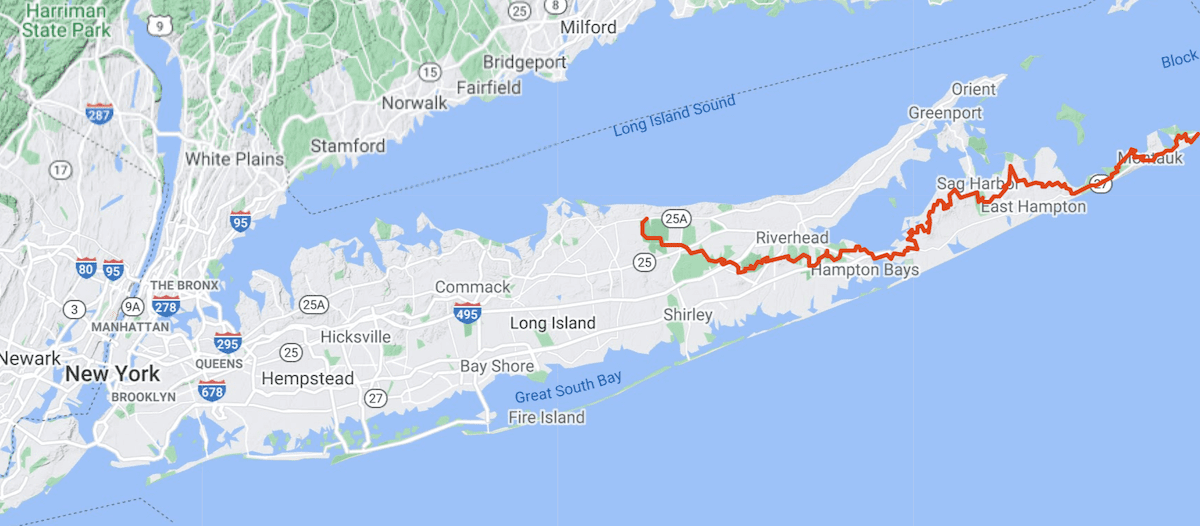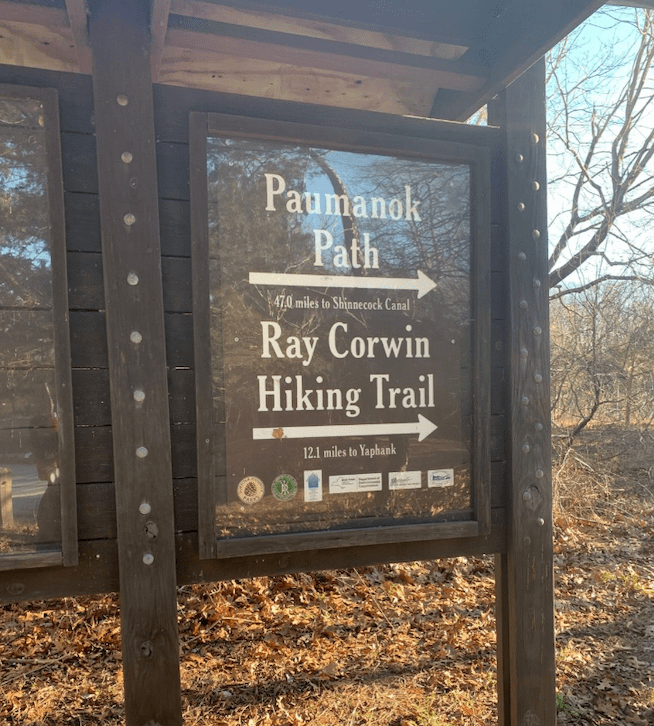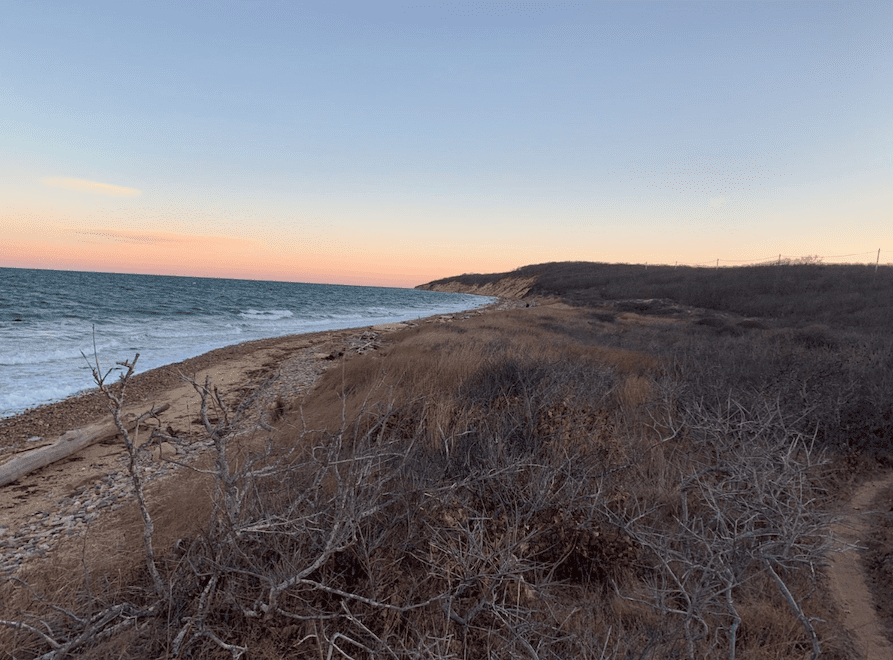Connecticut ultrarunner sets FKT on 200K Long Island trail
Despite running unsupported, Justin Kousky beat the supported route record on the Paumanok Path by six hours

When you hear Long Island, you might think of New York City, which probably doesn’t elicit thoughts of wilderness and nature. However, Long Island is, well, quite a long island, and there’s much more to it than just the NYC boroughs of Brooklyn and Queens. An ultrarunner from Connecticut named Justin Kousky recently ran the fastest known time (FKT) on a Long Island trail called Paumanok Path. Kousky ran unsupported (meaning he carried all of his own gear and didn’t receive help from anyone throughout the run), but he still managed to smash the supported FKT by six hours, completing the 200K route in 25 hours, 42 minutes.

Kousky is coming off a big year of ultramarathons, as he ran to four race wins in 2020, and he continued his streak of impressive runs by kicking off 2021 with a big project. As he wrote in his run recap on fastestknowntime.com, he had been eyeing this FKT for a while. However, planning the run was difficult, he said, as it was tough to know when the best time would be to go for it. He ultimately decided on a winter run, starting on January 9 and finishing a day later, which he thought would be better than a much warmer outing in the spring or summer, and the decision clearly worked out for him.
RELATED: California ultrarunner smashes 67K FKT in just under 6 hours
Another factor Kousky considered was where he would be able to get water on the route. Since he was running unsupported, he couldn’t accept water from anyone on the route, nor could he stash anything at certain checkpoints to pick up along the way. This meant he had to find natural water sources, which he admitted could have been tough in colder temperatures. He finally saw a window of opportunity in early January, and he decided to take it.
At this point, he wrote that it was “a bit too cold,” but he was able to find “just enough water to survive” on the route. He notes that the water was far from pleasant to drink, though, and even after running it through a filter he had brought with him, the stench was tough to swallow. “I ended up using iodine and mixing it with tailwind,” he wrote, “and holding my breath while swallowing quickly to minimize the impact.”

The water situation was far from enjoyable for Kousky, but he wrote that he had several much more serious moments on the route as well. At one point, the trail took him to a beach where wind and high tides made for a very uncomfortable and potentially dangerous stretch. “The route at this point required me to wade through icy water up to the calves,” he wrote. “It was cold enough here that I was seriously worried about hypothermia, [and] had to push hard through the next few sandy miles and maintain my core body temperature — walking here would have been very dangerous.”
RELATED: Year in review: the top FKTs of 2020
After venturing into the water, Kousky ran into some mud pits and sections of overgrown trail he called a “bramble scramble,” but he managed to make it to the finish, where his wife picked him up. Despite having to wade through water and navigate his way around bramble scramble and mud, Kousky averaged an impressive 7:42 per kilometre throughout the 200K run. His result is the only known unsupported time on the Paumanok Path so far, but he hammered the current supported FKT of 31 hours, 43 minutes, which has stood since March 2019. To see more, click here.


